This week’s feature is part of a new series where we take a look at a popular Sega game or franchise and try to find other games that have something in common with the game we’re highlighting. At the moment the Shenmue series is in a limbo of sorts with no proof that we’ll ever see a third game in the series. Thus, we felt it was a good candidate this feature where we highlight other games Shenmue fans may enjoy.
So hit the jump and check our list of games we feel have something in common with Shenmue or used various elements as inspiration.
10. Chibi Robo
Elliott Riggen: Chibi Robo probably has little to do with Shenmue directly, but I think there is an indirect quality of the game that makes it a good recommendation for those who like the game, Shenmue. Chibi Robo takes place in the home of the Sanderson family and it is your job to take care of things around their house and along the way stumble upon a variety of characters in all the rooms.All of these characters have significant and specific interactions and what is really crucial to Shenmue is building relationships with all of the different characters and building a sense of community in the setting of the game. Therefore, you start to know when and where to find each of the characters. Not to mention the game is incredibly fun.
9. Echo Night
Scott Morrison: Echo Night is a mystery adventure game that takes place on a cruise ship in 1918. The purpose of the game is to put ghosts’ souls to rest by finding items significant to their past lives while discovering how all the people and events relate to your lost father’s abandoned house. The main similarities between Echo Night and Shenmue are found in the pursuit of clues and discovering the relevance of certain items. Echo Night does very little handholding and only points you in the general direction by making it very clear where you cannot explore due to angry spirits blocking certain paths. In Shenmue, large amounts of time can be spent reading and comparing notes, and the same can be said for Echo Night as you read over and examine items until you discover their correlation to certain areas and people. The atmosphere of the cruise ship in Echo Night can feel as large as Shenmue’s overall world, but also just as intimate as Ryu’s hometown. Despite its creepy atmosphere, Echo Night is a very engulfing mystery that will be hard to put down for any Shenmue fan willing to explore the world as extensively as they did in Yokosuka.
8. Omikron
Alex Riggen: Omikron has a lot in common with Shenmue. For one, it’s an adventure game that is played in the third-person perspective and the story often progresses from you wandering the world and visiting people and locales that you discover. In comparison, many adventure games, especially those of the point-and-click variety, focus more on inventory based puzzles which are nearly non-existent in both Shenmue and Omikron. Another major similarity is the action segments in both games which change the controls and the overall gameplay dramatically from the adventure segments. Shenmue had the Virtua Fighter style fight scenes and Omikron included both one on one fight scenes as well as first-person mission segments. Shenmue pulled this element off much better as Omikron’s were a little stiff and sloppy but still playable and worth experiencing the entire game for.
7. Phoenix Wright
Sven Wohl: Phoenix Wright most certainly does not pop up first in your head when you think about games that are similar to the good old Shenmue. However, I think that Shenmue is, at least to a certain extend, a lot like a classic adventure game. You run around in an environment and gather information in order to figure out something. Sure, you don’t collect massive amounts of objects, but at its core, it’s still a lot about making conversation, figuring things out and exploring your environment. Those are pretty much the key aspects of any Phoenix Wright game, so those are definitely worth a look.
6. Animal Crossing
Josh Newey: When Shenmue first came out so many years ago, I was absolutely blown away by the size of this living, breathing world that Ryo was living in. These days, it’s a hell of a lot easier to see through the vending machines, convenience stores and scads of people when larger, more ambitious open world titles have easily overshadowed them–at least in terms of size and depth. Still, while games like GTA and Infamous come closer to a realistic portrayal of a busy street corner, they lack Shenmue’s credible sense of community and everyday existence within its world. Very few games even come close to this, and Animal Crossing probably comes the closest. Animal Crossing, while wholly unrealistic, presents a world where community, the daily grind, and the ownership of arbitrary belongings like furniture and clothing is an integral and genuinely fun aspect of the gameplay. These bits don’t really mean much, but they help to create a believable world that the player doesn’t just plow through; they become a part of it. Add in other Shenmue-esque features like a realistic day/night cycle and genuinely unique and hilarious characters, and you’ve got a world structure that falls in line surprisingly well with Shenmue’s absorbing, distinct, and unapologetically arbitrary world.
5. Deadly Premonition
Alex Riggen: If you take Shenmue and mix it with equal parts Resident Evil 4 and the David Lynch television series, Twin Peak, you get Deadly Premonition. The game uses an in-game clock just like Shenmue’s where time passes as you play and certain events occur at certain moments in time. There’s the fact that every character you meet has their own lives and schedules they follow which gives the small town you’re visiting the feeling that it’s actually alive and exists without your presence. Plus, instead of Virtua Fighter style action scenes Deadly Premonition breaks up the adventure gameplay with Resident Evil 4 style survival horror missions. There’s even a similar attention to detail that Shenmue had with every building interior having tons to look at and explore with small details most games miss. I could go on and on but really it’s worth every Shenmue fan checking out Deadly Premonition as many of my favorite elements from Shenmue made their way into this game.
4. Virtua Fighter
Mike Kyzivat: Were you like me when I played Shenmue? longing for more opportunity to bust peoples faces up? Running around a little town in Japan collecting tiny Sega Capsules and playing old arcade games can only take me so far. Sooner or later I’m gonna feel the need to jump kick someone upside the head. And since I don’t remember Shenmue having many fights, the logical alternative would be the Virtua Fighter series. not only is VF made by Yu Suzuki the same man responsible for Shenmue, but the VF game basically serves as the fighting engine in Shenmue. like that three-part elbow to back hit Ryo does? that’s Akira from VF, like the giant swing? that’s Wolf from VF. Every fighting technique Ryo uses he ripped off from one of the VF cast members. Shenmue has always been about the exploration, so I guess they just wanted a quick fighting engine, and they couldn’t have picked a better one then Virtua Fighters. So, if you get tired of playing lucky hit and you just wanna hit somebody, just pick up a copy of VF.
3. Silent Hill
Mike Kyzivat: I LOVE the Silent Hill series, I mean I really, Really, REALLY LOVE SILENT HILL, so any time I can talk about it I’m as happy as Pyramid Head in a Mannequin factory. Now don’t get me wrong, I’m not shoe-horning Silent Hill into this topic just so I can talk about it; there really are very similar things between Shenmue and Silent Hill.
Figuring out the plot is a part of Shenmue. Why was that medallion stolen? Who is that lan di guy? How can I get someone to play lucky hit? Figuring things out has also been a big part of Silent Hill as well. Who is causing all this? Where did all this fog come from? Why does that dead body, next to my 3rd grade teachers dress that is wrapped around that mannequin, have a piece of paper in its hand with my old SAT scores on it?
This is a subtle similarity, but one worth bringing up nonetheless. That is, keeping things mysterious. The makers of Silent Hill have many times declined to answer questions that would clear up confusion in the Silent Hill universe (so as to keep it a mystery and keep it scary) And SEGA has also done the same by keeping Yu Suzuki from ever finishing Shenmue’s story and thus keep it frustrating. Not even giving the fans closure with a movie, a book, or a blog, or a Tweet, or something.
Item collection is also a part of Shenmue, you can spend hours collecting those cute capsules filled with your favorite SEGA characters, just like in Silent Hill you can collect such things as: a rusty knife, shot gun shells, books on satanic ritual, and an Umbilical Chord.
But I guess the biggest similarity is the exploration that is a prominent feature in both games. In both games you spend much of your time getting to know the area you are in. True, one is a quaint Japanese town and the other is a hellish landscape that wants to swallow your soul, but exploration is exploration. Just because in Shenmue when you turn a corner you may find a noodle shop you had never seen before and in Silent Hill when you turn a corner you may find hideous flesh monsters raping each other, doesn’t mean it takes away from that warm feeling of discovery.
2. Heavy Rain
Scott Morrison: Heavy Rain reminded me of Shenmue in many ways both subtle and apparent. Shenmue is a mystery game in a sense, and would give you clues to point you in the general direction through out the adventure, which Heavy Rain also accomplished. Heavy Rain made clues more obvious, but the world around you allowed for so much exploration that it was easy to get distracted and simply forget the clues you were initially putting together. Shenmue also provided excellent distractions from its main story line, but in a more open-world manner than Heavy Rain’s overall linear world. Areas in Heavy Rain are separated into chapters, which is similar to Shenmue, but the separation of areas for Ryu’s adventure are more physically apparent than Heavy Rain simply listing the chapters on a screen. Something I find slightly similar between the two games are the awkward characters and people within the world as well. Engaging in conversations does supply for plot advancement, but sometimes those conversations are delivered only the way a scripted video game could do so. With the incredibly interactive world and detective aspects that ring throughout, Heavy Rain is a game that any Shenmue fan should try.
1. Yakuza
Josh Newey: It should come as no surprise that Toshihiro Nagoshi’s ambitious, deep, and enthralling rendition of the Japanese crime world falls at number 1 on this list. One of the most common arguments that I’ve heard amongst Shenmue fans is whether or not Yakuza is capable of filling the shoes of one of Sega’s most beloved and arguably underutilized franchises. I won’t address that valid debate now, but suffice it to say that Yakuza’s portrayal of everyday life in a thoroughly believable and fully-fleshed out Japanese city comes closer to emulating Shenmue’s distinct flavor than just about any other series I’ve played.
The capricious and oft-lighthearted miniquests, the shops, the characters, and the combat all feel like they’ve carried on the logical progression of where Shenmue could have gone as a series. The mystery-based storylines, while different in terms of depth and structure, both follow a similar crime-solving angle that has you exploring your world further to progress. Quick Time Events, one of Shenmue’s most notable additions to the gaming world, live on in Yakuza, playing out in bustling Japanese city streets in action-packed sequences that evoke the same feelings inspired by Shenmue’s most defining QTEs. These similarities in combat, story, and environment are hardly surprising, as Yakuza inherited folks who actually worked on Shenmue, but it’s still an odd feeling to sit down with a game all these years later and suddenly feel fleeting moments of deja vu.
There’s no question about it—If you are looking to experience the lively roots of Shenmue, you will most certainly feel them in the soil of Yakuza. While the series falls short in a handful of essential areas, it will sate the hunger of rabid and famished Shenmue fans, at least for a little while. Shenmue, we miss you. But at least we have the pleasure of watching your kin continue to grow.



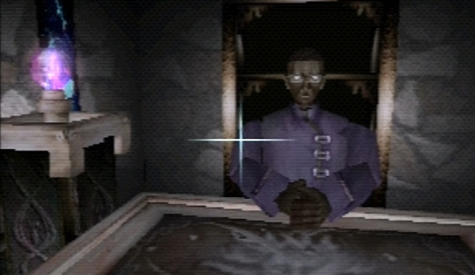
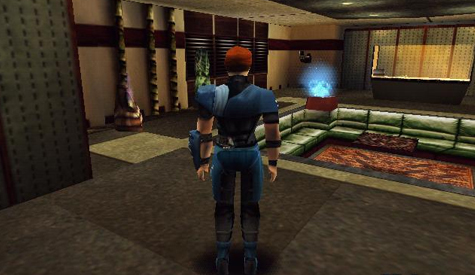



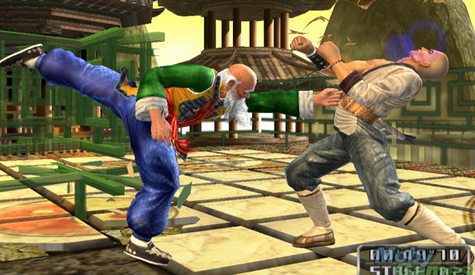
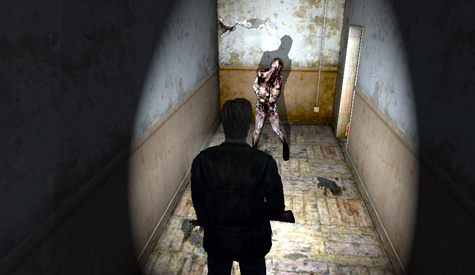

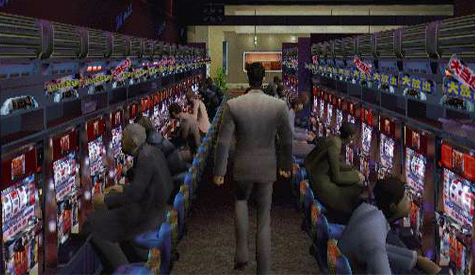

This summed it up pretty well, although I’m surprised of no Grand Theft Auto mention. If Shenmue introduced us to the sandbox, GTA made it marketable.